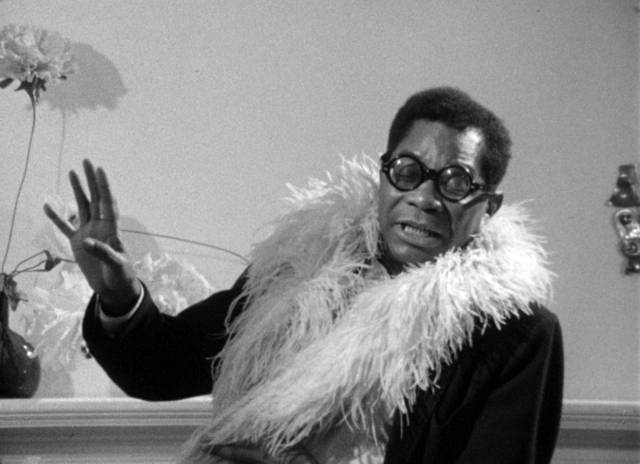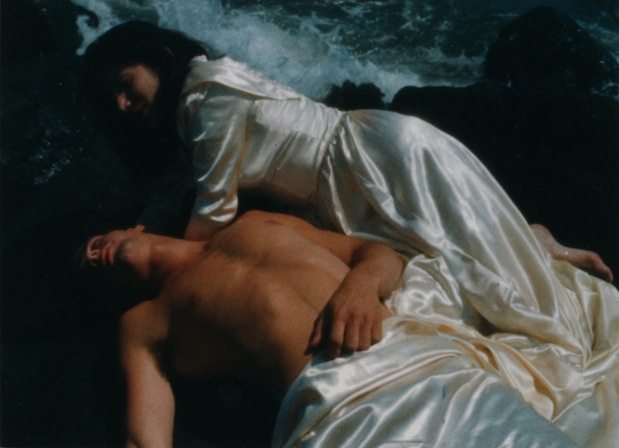
 From April 22 to May 01, the Film Society of Lincoln Center will present An Early Clue to the New Direction: Queer Cinema Before Stonewall, a series which intends to prove that queer cinema existed before the LGBT liberation of the late 60s. Perhaps queer films were harder to come by, and many of them remained as underground pieces that would only be enjoyed by a select few. But the series more than anything proves that there was more to queer presence onscreen than the stereotypical Hollywood sissies, or the butch female sidekick (who eventually became a villain) or the asexual “niece” of the lead character.
From April 22 to May 01, the Film Society of Lincoln Center will present An Early Clue to the New Direction: Queer Cinema Before Stonewall, a series which intends to prove that queer cinema existed before the LGBT liberation of the late 60s. Perhaps queer films were harder to come by, and many of them remained as underground pieces that would only be enjoyed by a select few. But the series more than anything proves that there was more to queer presence onscreen than the stereotypical Hollywood sissies, or the butch female sidekick (who eventually became a villain) or the asexual “niece” of the lead character.
The series features masterworks like Alfred Hitchock’s Rope, Vincente Minnelli’s Tea and Sympathy and Ingmar Bergman Persona (to think that this film existed before Stonewall makes one blush with embarrassment for how slow our progress as a society has been), but for every major film there is an experimental short, silent film, or B movie next to it that you might not have heard about before, and it is here where the real treasures of the series are. Here’s five of the lesser known/screened titles that are absolutely essential:
Lupe (screened with Flaming Creatures)
Jose Rodriguez-Soltero’s lo-fi biopic of actress Lupe Vélez stars legendary drag performer Mario Montez as the tragic vedette who had also inspired Andy Warhol’s eponymous film (starring Edie Sedgwick) Using cues from Spanish boleros and tangos like “Historia de un amor” and “Ay…”, the film becomes something akin to a dream musical, with Montez seducing the camera to create the kind of portrait that has left traces you can find all the way to Almodóvar.
An Early Clue to the New Direction (screened with My Hustler)
The friendship between a young woman (cult actress Joy Bang) and an older man played by early gay rights-activist Prescott Townsend,is at the center of this strange, but heartwarming short in which we learn Townsend’s theory of the human mind being like a snowflake. It’s delightful to see a film that allows its characters to engage in intellectual dialogue without the weight of a plot, and by the time the film arrives to its lovely conclusion one is so caught up in the banter between these two, that it truly hurts to let them go.

Twice a Man (screened with Oblivion + Winged Dialogue & Plan of Brussels)
Gregory J. Markopoulos’ absolutely stunning take on the myth of Hippolytus sees the stunning Paul Kilb play a gay man who must break off an affair at the request of his domineering mother (a ravishing Olympia Dukakis). Markopoulos’ unique staging and editing make the film seem like the father to Tom Ford’s visually stunning, but maddeningly shallow A Single Man, as they both try to capture gay desire through gorgeous images. Where Ford failed and Markopoulos more than succeeds is in understanding our capacity to comprehend or at least feel things on a visceral level through the sheer power of the images on the screen. Markopoulos’ essay of silent melancholy takes your breath away and haunts your soul.
Princess Mandane
Lesbian director Germaine Dulac was mostly known for her experimental work, but in this 1928 fiction narrative she puts on a show that would rival the work of any better known of the silent masters in its epic scope and beauty. Loosely adapted from Pierre Benoit’s novel, the film stars Edmonde Guy as the title princess, and features costumes and sets that would make Baz Luhrmann’s works feel understated.
Portrait of Jason
Shirley Clarke interviews Jason, a gay African American hustler who could charm the pants off anyone he talks to. When the film begins, Jason seems to be little more than a talented storyteller, a man who is always putting on a performance for his clients and friends. But by the end of the film, Clarke has seen past his facade and shows a human being who has been hurt and craves to reclaim his soul. That Clarke does this without recurring to any gimmicks, or emotional manipulation makes this a nonfiction film for the ages.
For more information and tickets to An Early Clue to the New Direction: Queer Cinema Before Stonewall click here.